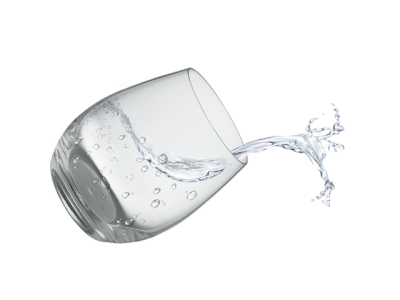The Daily Telegraph recently reported that “Fizzy water could cause obesity by encouraging you to eat more”. The story comes from a study published in the peer-reviewed journal Obesity Research and Clinical Practice.
Previously, quite a few studies had highlighted a link between obesity and soft drinks, which is most likely to be related to:
- their sugar content (and particularly high-fructose corn syrup) or even
- (zero-calorie or low-calorie) sweeteners.
Now, it seems that perhaps the carbon dioxide they contain could also be at fault, that carbonation by itself could lead to weight gain. This would mean that even sparkling water would be leading to weight gain.
What is the research on this? Researchers from Birzeit University in Palestine ran two studies, one on rodents and one on humans. The findings for the rodent study were:
- the rodents that drank carbonated (sparkling) water ate 20% more and gained more weight over 6 months than those that drank still (flat) water.
- the rodents drinking carbonated water had higher levels of the hormone ghrelin (hunger hormone, higher levels of which encourage eating more)
The findings from the human study were:
- in the human volunteers, ghrelin levels were higher after drinking fizzy drinks one hour after food – three-folds higher than after flat soda, and six-folds higher than after water.
- probably more interesting stuff, to which I do not have access
Discussion
- This indicate that carbonation and ghrelin production *just MIGHT* be an additional explanation for increased appetite and incidence of obesity. However…
- Limitations:
- I have to wonder… does the timing of the fizzy drink matter? Drinking in the morning or in a fasted state, or after only a LIGHT breakfast (as in the human study) may be different to drinking the sparkling water after a substantial meal or later in the day.
- the study only included a small sample of just 20 male subjects, all aged 18-23 (hardly representative of human lifespan)
- this is not enough participants to allow drawing any conclusions
- it is impossible to extrapolate these findings to all males, any females, people in different age brackets or other populations with different genes and food environments.
- Study Significance
- These studies simply raise the possibility that carbonated drinks (also known as “fizzy drinks”)- even if unsweetened and containing no sweeteners whatsoever – could stimulate appetite and increase weight-gain risk
- This hypothesis definitely warrants further investigation
- It is possible that the effect noticed is due to a host of other reasons, such as that people who consume lots of fizzy drinks may also be more likely to have a less healthy diet and to be doing less exercise
PRACTICAL APPLICATIONS
What does it mean for us now? While science does it thing, we can certainly try going “fizzy-free” to see if that has any impact on our hunger levels or body weight…
REFERENCES
http://www.telegraph.co.uk/news/2017/05/15/fizzy-water-could-cause-obesity-encouraging-eat/
Carbon dioxide in carbonated beverages induces ghrelin release and increased food consumption in male rats: Implications on the onset of obesity, https://www.ncbi.nlm.nih.gov/pubmed/28228348
https://www.ncbi.nlm.nih.gov/pubmedhealth/behindtheheadlines/news/2017-05-15-can-fizzy-water-make-you-fat-/
http://thehealthscienceacademy.org/science-catch-up/

